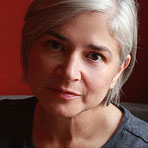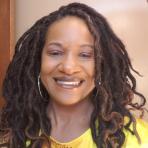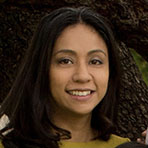Co-Directors Participating Faculty Technical Experts and Presenters
Co-Directors

Joy Castro, University of Nebraska-Lincoln
Joy Castro, Willa Cather Professor in the Department of English and Ethnic Studies, is the immediate Past Director of the Institue of Ethnic Studies (IES). As a co-PI, she has been instrumental in the outreach to MSIs and in our planning. She will co-direct the research institute bringing expertise in both storytelling and ethnic studies. She is the author of the memoir The Truth Book, the novels Hell or High Water and Nearer Home, the essay collection Island of Bones, and the collection of short fiction How Winter Began. Her work has won the International Latino Book Award and Nebraska Book Award and been selected as a Finalist for the PEN Center USA Literary Award, and she has held a Bread Loaf Writers' Conference scholarship in nonfiction. Her books have been adopted for courses at dozens of colleges and universities, including Brown, Grinnell, Purdue, UC-Davis, Rutgers, and Vanderbilt. She received the UNL Annis Chaikin Sorensen Award for Distinguished Teaching in the Humanities in 2011 and the UNL College of Arts & Sciences Outstanding Research and Creative Activity Award in 2013.
Margaret Huettl, University of Nebraska-Lincoln
Margaret Huettl, the descendant of Lac Courte Oreilles Anishinaabeg, Assyrian refugees, and European settlers, is an Assistant Professor in History and Ethnic Studies. She has participated in visits with NSIs as part of the planning for this institute. As a co-PI, she will contribute her expertise on Indigenous histories, epistemologies, and storytelling. She is a scholar of Native American history and North American Wests, and her research examines Indigenous sovereignty and settler colonialism in a transnational context. Her current project, Our Lands and Our People: Ojibwe Peoplehood in the North American West, 1854-1954, explores the unbroken history of Ojibwe or Anishinaabe sovereignty in the United States and Canada during the nineteenth and twentieth centuries, centering her research on Anishinaabe ways of knowing. Her research and teaching interests focus on Indigenous histories in North America, with a special interest in ethnohistorical methods and public history.

Jeannette Eileen Jones, University of Nebraska-Lincoln
Jeannette Eileen Jones, Associate Professor of History and Ethnic Studies, is the author of In Search of Brightest Africa: Reimagining the Dark Continent in American Culture, 1884-1936. As a co-PI, she has led in outreach to HBCUs and other MSIs. As one of the co-directors of the research institute, she will bring her expertise on race, African-American history, transnationalism, and empire. She is a historian of the United States, with particular emphasis in American cultural and intellectual history and African American Studies, with strong interests in race and representation, Atlantic studies, and science studies. Her research reflects her desire to contribute to the larger critical conversations taking place in these fields, specifically around the role of race in shaping American cultural and intellectual discourse and production. She examines the ways in which “race” as a popular and scientific category operated as a potent signifier of difference—cultural, biological, social, and political—in late nineteenth- and early twentieth-century America. However, recognizing the rising global significance of race as an organizing principle, as well as the transnational migration of ideas about race during this period (roughly the Gilded Age to the end of World War II), her research extends across the Atlantic. It seeks to uncover the discursive relationship between America, other Western, and "subaltern" perspectives on imperialism, citizenship, and social belonging, as mediated primarily through the lens of race, but also through those of gender (ideas about femininity and masculinity) and sexuality. She is a 2016 recipient of a College of Arts & Sciences teaching award. She also has an NEH-funded collaborative digital project underway: "To Enter Africa from America": The United States, Africa, and the New Imperialism, 1862–1919.

Kenneth M. Price, University of Nebraska-Lincoln
Kenneth Price is Hillegass University Professor in the Department of English. For this initiative, he has travelled to each of the eight MSIs we visited. As a co-PI of the institute, he will provide expertise on the strengths and limitations of digital archives. He is the founding co-director of both the Center for Digital Research in the Humanities and The Walt Whitman Archive. Price is best known for his field-changing digital work on Whitman. He is also the co-editor of Literary Studies in the Digital Age, the MLA's first open access, online-only publication. He has a long-standing interest in African American literature and culture. He was one of the founding co-directors of the Civil War Washington project, helping to lead its study of race, slavery, and emancipation in the capital city. He recently joined Stephanie Browner as a co-director of the Charles Chesnutt Digital Archive.

William G. Thomas III, University of Nebraska-Lincoln
William G. Thomas is the John and Catherine Angle Chair in the Humanities and Professor of History. As co-PI he will model new forms of doing history. He served as Chair of the Department of History from 2010 to 2016. A John Simon Guggenheim Memorial Foundation Fellow in 2016, Thomas’s research and writing endeavor to demonstrate the full capability of digital scholarship to give voice to people whose lives have been out of reach and to send their histories into the public and scholarly realms through digital media. He served as the co-founder and director of the Virginia Center for Digital History at the University of Virginia. He was a co-editor of the award-winning digital project Valley of the Shadow: Two Communities in the American Civil War. With Edward L. Ayers, he co-authored “The Differences Slavery Made: A Close Analysis of Two American Communities,” one of the first pieces of digital scholarship published in the American Historical Review. In February 2018 Thomas and an interdisciplinary team released Anna, a 12-minute animated short film about one woman’s quest for freedom in early Washington D.C. Based on his current digital project, Anna is an experiment in the form of digital humanities research and creative storytelling (annwilliamsfilm.com).
Claire Jimenez, Graduate Assistant, University of Nebraska-Lincoln
Claire Jimenez is the author of the short story collection Staten Island Stories (Johns Hopkins Press, December 2019), which received the 2019 Hornblower Award for a first book from the New York Society Library. Jimenez is a PhD student in English with a specialization in ethnic studies and digital humanities at the University of Nebraska–Lincoln. She received her MFA from Vanderbilt University. She is a co-recipient of the Andrew W. Mellon Foundation Presidential Initiatives Grant to fund The Puerto Rican Literature Project, a digital archive. Currently, she is an assistant fiction editor at Prairie Schooner. Her fiction, essays, and reviews have appeared in Remezcla, Afro-Hispanic Review, PANK, The Rumpus, el roommate, and Eater, among other publications.
Participating Faculty
Thomas F. Anderson
Kent Blansett, University of Nebraska-Omaha
Kent Blansett (Cherokee, Creek, Choctaw, Shawnee and Potawatomi descendant) is Associate Professor and Charles & Mary Caldwell Martin Professor of Western American History at the University of Nebraska-Omaha. At the institute he will present on Native American digital history. His first book, A Journey to Freedom: Richard Oakes, Alcatraz, and the Red Power Movement (Yale University Press, 2018) appears in their Henry Roe Cloud Series on American Indians and Modernity.
Sylvia Fernández, University of Houston
Sylvia Fernández is a Ph.D. Candidate with the Department of Hispanic Studies at the University of Houston. Her research is on Latin American and Latino/a Literature with a focus on Border Studies, Women’s, Gender and Sexualities Studies, Hispanic Archives, and Digital Humanities. Among her DH collaborations, she cofounded Borderlands Archives Cartography (BAC), is part of the core team of Torn Apart / Separados, and the ongoing project of United Fronteras.
Jessica Marie Johnson, Johns Hopkins University
Jessica Marie Johnson is an Assistant Professor in the Department of History at the Johns Hopkins University. At the institute she will speak on "Race, Gender, Sexuality, and Debates in the Digital Humanities." Johnson is a historian of Atlantic slavery and the Atlantic African diaspora. As a digital humanist, Johnson explores ways digital and social media disseminate and create historical narratives, in particular, comparative histories of slavery and people of African descent. She is the founder of African Diaspora, Ph.D. (africandiasporaphd.com), co-organizer of the Queering Slavery Working Group with Dr. Vanessa Holden (University of Kentucky), a member of the LatiNegrxs Project (lati-negros.tumblr.com), and a Digital Alchemist at the Center for Solutions to Online Violence (femtechnet.org/csov).
Marisel Moreno, University of Notre Dame
Marisel Moreno, Ph.D., is the Rev. John A. O’Brien Associate Professor in the Department of Romance Languages and Literatures at the University of Notre Dame. She was a recipient of the American Association of University Women Fellowship in 2009-2010. Her first book, Family Matters: Puerto Rican Women Authors on the Island and the Mainland, was published by the University of Virginia Press in 2012. She received the Indiana Governor’s Award for Service-Learning (2011), the Sheedy Excellence in Teaching Award (2016), and the Rev. William A. Toohey, C.S.C. Award for Social Justice (2019). Prof. Moreno’s teaching and research interests include Latina/o-Caribbean authors (Puerto Rican, Dominican, and Cuban authors in the US), as well as Afro-Latina/o and U.S. Central American cultural production. Issues of race, ethnicity, gender, and class are central to her work. Her articles have been published in Hispanic Review, Latino Studies, Studies in American Fiction, Afro-Hispanic Review, CENTRO, The Latino(a) Research Review, MELUS, Hispanic Journal, and Sargasso, among others. Her chapter, "Keeping It Real: Bridging US Latino/a Literature and Community Through Student Engagement" was published in Civic Engagement in Diverse Latinx Communities: Learning From Social Justice Partnerships in Action (Peter Lang 2018). She has co-created and co-organized, with Thomas F. Anderson, the online awareness micro-course Listening to Puerto Rico, a collaboration between the Universities of Notre Dame and Michigan, which is based on interviews filmed in Puerto Rico in June 2018 with survivors of the Hurricane. In Spring 2012, she co-organized and co-curated with Thomas F. Anderson an exhibit on Puerto Rican graphic art at the Snite Museum, and co-authored the exhibit catalog Art at the Service of the People: Posters and Books from Puerto Rico’s Division of Community Education / Arte al servicio del pueblo: Carteles y libros de la División de Educación de la Comunidad de Puerto Rico. This exhibit traveled to California Lutheran University in 2017, and is on display at the National Museum of Puerto Rican Arts & Culture on display at the National Museum of Puerto Rican Arts & Culture from August 2018 through January 2020. Prof. Moreno is a Faculty Fellow at the Institute for Latino Studies, the Helen Kellogg Institute for International Studies, and the Kaneb Center, and is Affiliated Faculty in Gender Studies and Africana Studies. She is currently working on her second book project, provisionally titled Crossing Waters: Undocumented Migration in the Cultural Production of the Hispanic Caribbean and Its Diaspora.
Amanda Phillips, Georgetown University
Amanda Phillips is an Assistant Professor of English at Georgetown University. At the institute, she will speak on "Transforming Digital Humanities." She received her Ph.D. from the Department of English as a Mellon/ACLS Dissertation Completion Fellow at the University of California, Santa Barbara, with an emphasis certificate from the Department of Feminist Studies, and she served as the IMMERSe Postdoctoral Fellow at the University of California, Davis. Her publications can be found in Games and Culture, Queer Game Studies, Digital Creativity and Debates in the Digital Humanities. She is a founding member of the #transformDH Collective and chairs the American Studies Association Digital Humanities Caucus Board.
Roopika Risam, Salem State University
Roopika Risam is an Assistant Professor of English at Salem State University. She will speak on Postcolonial DH Theory and Practice. Her research focuses on digital humanities, postcolonial studies, US ethnic studies and African American studies. Her digital scholarship includes Social Justice and the Digital Humanities; The Postcolonial Digital Humanities Website; and The Rewriting Wikipedia Project. Her book New Digital Worlds: Postcolonial Digital Humanities in Theory, Practice, and Pedagogy is forthcoming from Northwestern University Press.
Shearon Roberts, Xavier University
Shearon Roberts, Xavier University, is an Assistant Professor of mass communications with an expertise in digital storytelling. At the institute, she will speak on "Repair Work in Humanities Digital Media." She is the co-author of Oil and Water: Media Lessons from Hurricane Katrina and the Deepwater Horizon Disaster.
Rebecca Wingo, University of Cincinnati
Rebecca S. Wingo's research centers on the long nineteenth century with a focus on the Indigenous and American West. Her most recent co-authored book (with Richard Edwards and Jacob K. Friefeld), Homesteading the Plains: Toward a New History (University of Nebraska Press, 2017), won the 2018 Nebraska Book Prize for Nonfiction.
Technical Experts and Presenters
Brett Barney, University of Nebraska-Lincoln
Brett Barney, a Research Associate Professor, will co-lead two technical workshops, one on web design and another on metadata and information architecture. He has expertise in encoding standards and served two terms (2010-2013) on the TEI Consortium’s Technical Council.
Karin Dalziel, University of Nebraska-Lincoln
Karin Dalziel, has an MA in Library Science. She will co-lead three technical workshops on project management, metadata and information architecture, and building web pages with HTML/CSS. She is a Digital Resources Designer & Developer at the Center for Digital Research in the Humanities (CDRH). She is knowledgable about design, encoding systems, and XSLT; she works with team members to create attractive, accessible, and usable websites.
Kwakiutl Dreher, University of Nebraska-Lincoln
Kwakiutl Dreher is an Associate Professor of English with expertise in African American literature. She will speak on "Digital Media Storytelling Technique and Practice."
Sarita B. Garcia, University of Nebraska-Lincoln
Sarita B. Garcia is a junior developer at the Center for Digital Research in the Humanities at the University of Nebraska-Lincoln. She’s worked on Cartas a la Familia and The Nebraska-Latino Heritage Collection. Sarita received her Bachelor of Arts in August of 2017 from Texas A&M University-Kingsville, and her M.A. in History and a certificate in digital humanities from the University of Nebraska-Lincoln in 2019.
Kaci Nash, University of Nebraska-Lincoln
Kaci Nash, MA in History, will co-lead two technical workshops on project management and on building web Pages with HTML/CSS. She has several years' experience in archival research, document transcription, web design, and digital text encoding.
Greg Tunink, University of Nebraska-Lincoln
Greg Tunink has been a programmer/analyst in the Center for three years, and has a degree in computer science. He will co-lead two technical workshops on data management and on building web Pages with HTML/CSS.
Laura Weakly, University of Nebraska-Lincoln
Laura Weakly has an MA in journalism. She will co-lead three technical workshops on web design, digitization, and metadata and information architecture. She is the metadata encoding specialist at the CDRH.
Participants
Donna Anderson, a PhD Student at the University of California, Santa Barbara
Donna Anderson’s research engages with the ways people residing in the Midwest crafted their identities within broader national and global imaginaries. The project Anderson is pursuing for the New Storytellers: Research Institute in Digital Ethnic Studies proposes that late-19th-and 20th-century Asian American communities in the Midwest bourgeoned through translocal and transnational connections. While inherently geographic, this project challenges the boundaries of the Midwest and what it means to be an ethnic community. In engaging with this research, Anderson’s hope is to use the digital humanities methods to push against frameworks that tie Asian American communities to their geographic locations (e.g. ethnic enclaves) by demonstrating the local and global connections that bound them together. Further, Anderson hopes to highlight the research in a digital archive with a corresponding curriculum accessible to students and educators as a way to illuminate the marginalized voices within Asian American studies and United States history.
Dr. Theresa Avila, Assistant Professor of Non-Western Art at California State University
Dr. Avila earned a Ph.D. in Art History from the University of New Mexico with a focus on Modern Latin American and Latin@x art. As a scholar and curator, her work focuses on the intersections between the visual and political, as she interrogates historiography, nation-building, and systems of differentiation. As a Mexican descent citizen of the United States, who has and continues to live and work in California, New Mexico, and Arizona, she specializes in the history, practices, and systems that impact contemporary Latin@x communities within the U.S. southwest. With an interest in digital humanities, Dr. Avila has worked toward navigating how to bring to the surface the omitted histories and stories of diverse communities in the development of the United States as a country. Part of this effort includes being a creator and project manager on a grant-funded website dedicated to Mexican descent families who contributed to the founding of what is today Arizona entitled Mapping History Project: Stories of the Southwest.
Jenny Banh, Assistant Professor at California State University, Fresno in Anthropology and Asian American Studies
Dr. Banh received her BA from UCLA, her MA from Claremont Graduate University, and her PhD from the University of California, Riverside. Her research focuses on Asia/Asian American studies, cultural anthropology, and popular culture. Her current research is on restaurants, barriers/bridges to minority college students, and a Hong Kong transnational corporation. She has previously published "Barack Obama or B Hussein" (2012) and "DACA Spaces" (2018), and co-edited Anthropology of Los Angeles: Place and Agency in an Urban Setting (2017). Dr. Banh will be creating an interactive website that features digital map stories about how the SE Asian American students are in the #School2Prison2Deportation pipeline. In this map, she would like to document the history of failed colonial wars in East and Southeast Asia that led to multiple genocides. These SE Asian groups were then deemed ”grateful refugees” and put in the worst underprivileged areas in the United States in what Eric Tang calls the “hyper ghetto.” These groups were unprepared for urban life coming from rural backgrounds and war traumas. Some turned to crime to survive and now are subject to deportation decades after serving their sentences. Despite the “Model Minority Myth,” SE Asian Americans have one of the largest dropout rates, especially males. Through this website, Dr. Banh would like to give witness to the barriers and bridges that these students face.
Dr. Raquel Baker, California State University, Channel Island, Assistant Professor
Raquel Baker earned a PhD in English Literary Studies from the University of Iowa. She specializes in Postcolonial Studies and 20th- and 21st-century African literatures in English. She received a BA in Psychology from San Francisco State University and a MFA in Creative Writing from Mills College. She is currently an Assistant Professor of Postcolonial and Transnational Literatures at California State University Channel Islands, where she teaches creative writing and contemporary African literature. Dr. Baker's goal is to develop a digital project in which students use archival data; audio and video interviews they conduct; and photos and other written, visual, or digital content they create to present their research on a dominant cultural or personal narrative, while also researching and presenting what that narrative conceals or leaves out. The evolving archive will present narrative-based student research projects that tell under or misrepresented stories. Students will choose a digital tool based on the narrative effect they would like to achieve. In this art-based form of research, students tell a story they would like to tell within the specific context of analyzing power—understanding how the story is told in historical or official narratives and centering what those narratives leave out. Students will fashion digital strategies that question dominant knowledge claims and narrate a critical self.
Dr. Tatiana Bryant, Adelphi University, Assistant Professor
Tatiana Bryant is a librarian and professor in greater New York. She holds an MPA in Public and Nonprofit Policy from New York University, an MS in Information and Library Science from Pratt Institute, and a BA in History from Hampton University. She teaches courses in Black digital humanities, Global Studies, and information literacy. Her Black digital humanities project involves creating and disseminating an interdisciplinary annotated bibliography featuring key resources and archival collections for AfroLatinx Studies. AfroLatinx Studies forefronts and makes visible the interdependence of African migrations, presence, and influence in the historic and contemporary geographical, political, economic, and social, and cultural conceptions of Latin America, Latinx peoples, and the African diaspora.
Dr. Jonathan Byrn, Indigenous Studies and Ethnic Studies Instructor, Yakima Valley College
Dr. Jonathan Bryn holds a PhD In American Indian Studies with a concentration in Law and Policy, a Minor in Historical Archaeology, and Graduate Certificates in Native Nation Building and Indigenous Governance. He has an interdisciplinary background in history, anthropology, archaeology, and indigenous studies, with a recent focus on consultation and collaboration with Native Nations in the United States, Canada, and Australia. He has consulted on governance reforms, economic development, cultural and heritage resource management, and public history and interpretation for numerous nations and institutions. He is currently working on a monograph focusing on responsible public history and interpretation for indigenous and indigenous serving institutions. His dissertation examined native nation building in the United States as a semi-secular revitalization movement using a modified version of Anthony F.C. Wallace's model. For his project, Dr. Bryn wants to develop an option for the exploration of important culturally sensitive areas by creating a digital walkthrough. He is also looking to develop a remote classroom experience for high school students wishing to take an introductory indigenous studies survey course through a running start program, which would offer them college credit for the course here at Yakima Valley College. This would be beneficial to indigenous students in the Yakima Valley in remote areas that lack access to consistent wifi or other technological opportunities, as well as lack of transportation to the college.
Dr. Lara Cahill-Booth, Assistant Professor in the English and Communications Department, Miami Dade College
Dr. Uzzie Cannon, Norfolk State University, Associate Professor of English
Uzzie T. Cannon is an Associate Professor of English at Norfolk State University. She earned a Ph.D. from The University of North Carolina at Greensboro, where she specialized in African American Literature and Composition and Pedagogy. She went on to earn a second M.A. in Digital Humanities from Loyola University Chicago. As a teaching scholar, Dr. Cannon enjoys teaching freshman composition, where she sharpens students’ critical reading, thinking, and writing skills. In her literary research, she explores the intersection of race, gender, and narrative form in contemporary African American fiction. She has published in journals like African American Review and CEA Critic and has published a few book chapters on Black masculinity. Dr. Cannon also loves building digital humanities tools and applications for research in the humanities. When not teaching or writing, she loves to travel and to create black and white photographic images. Dr. Cannon’s current literary research goal for the DESI is to develop a reading literacy web application that targets young African American males at risk for falling behind in reading competency by the third grade. By developing a content-based recommendation algorithm, she will build an application that catalogs children and young adult literature that would represent the target users' social and economic demographic. The users would have reading recommendations made based on their critical input. Dr. Cannon’s goal is to create access to culturally relevant literature and promote reading literacy among young African American males.
Dr. Anne Soon Choi, Associate Professor in the Department of Interdisciplinary Studies at California State University Dominguez Hills
Anne Soon Choi is an Associate Professor in the Department of Interdisciplinary Studies at California State University Dominguez Hills. She is currently working on a book and digital project that examines the racial incorporation of Japanese Americans from Hawai’i (JAHs) into the South Bay region of Los Angeles County, particularly the suburban cities of Carson, Gardena, and Torrance after WW II. Specifically, she examines how race/ethnicity shaped the geography of Japanese Americans from Hawai’i including where they lived and how they used suburban space. By mapping this racial geography, this project documents the little-known history of JAHs in postwar Los Angeles and their impact on Japanese American experience writ large. Simultaneously, her project is an archiving project that is community-driven. She is interested in using Historypin https://www.historypin.org to create a community-centered project that would provide CSUDH undergraduates with opportunities to map their communities and learn new digital skills along the way. She is also a first-generation college student who calls Los Angeles home. She is also a novelist and mother of three.
Dr. J. Ashley Foster Assistant Professor of 20th & 21st-Century British Literature with Emphasis in Digital Humanities in the Department of English at California State University, Fresno
Working at the intersection of literary studies, digital humanities, peace studies, and women’s studies, Dr. Foster’s scholarship and teaching employs digital tools to trace the relationships between artistic and activist networks of the long 20th-Century and to facilitate intertextual readings between literature and archives. She has articles published in collected volumes and journals, including Radical Teacher, The Woolf Studies Annual, and The Virginia Woolf Miscellany. Dr. Foster’s project is to create a digital archive and interactive DH site that traces the lost histories of peace activism and scholarship. She seeks to do for peace studies what the Orlando Project has done for women’s studies. Dr. Foster and students from the graduate seminar “Utopias: Literature, Technology, Archives” curated the Digital Humanities and Special Collections exhibition Surveying Utopias: A Critical Exploration, which ran in the Henry Madden Library at Fresno State from February 22-July 26, 2019. The exhibition catalogue was published by The Press at California State University (2019) and can be accessed on the Surveying Utopias website. Dr. Foster and the students from her “Peace Testimonies in Literature & Art” Writing Seminar at Haverford College curated the interactive digital humanities and special collections exhibition Testimonies in Art & Action: Igniting Pacifism in the Face of Total War, which ran from October 6-December 11, 2015 in Magill Library at Haverford College.

Dr. Tony Frazier, Associate Professor in History at North Carolina Central University
Tony Frazier is currently Associate Professor at North Carolina Central University. His research interests cover the social and legal history of blacks in eighteenth century in Great Britain, Atlantic slavery and emancipation, and African American history. Professor Frazier served as co-editor of a monograph Topics in African Diaspora, published in 2016. He is currently completing a manuscript titled Slaves Without Wages: Runaway Black Slaves and Servants in Eighteenth-Century London under contract with Peter Lang Press Oxford. Professor Frazier was a Duke University Mellon Foundation-Franklin Humanities Institute Digital Humanities Initiative Fellow for the 2017-2018 academic year. His current digital research storytelling project investigates the 1839 Amistad slave ship revolt. The goal is to create a compelling and interactive accessible format of the revolt. The scope of this project is a re-imagining of the Amistad narrative beyond the text and the court trial in a new digital story map project. The project builds this conceptual framework by combining different types of digital tools and archival sources to provide a geospatial view the revolt. Integrating the individual narratives and images with digital mapping illuminates the black experience across time and location.
Dr. Melanie Hernandez, an assistant professor in English at California State University, Fresno
Dr. Melanie Hernandez’s research focuses on Mexican American racial formation from the mid-nineteenth through the turn of the twentieth century within the context of Whiteness studies. Rather than contributing to the story of how various U.S. ethnic groups became white, Dr. Hernandez’s research focuses on a group that was weeded out. As much as this formation played out through the theaters of science and U.S. jurisprudence, the “browning” of Mexicans within the U.S. imaginary was also a narrative process in direct conversation with post-Reconstruction-era racial politics and the rise of Jim Crow. Dr. Hernandez explores Mexican racial formation not solely in terms of land acquisition and labor relations, but through the literary and visual apparatuses that reconstitute Mexican-ness from a national designation that was racially nebulous to most Americans into a clear-cut non-white racial identity with an inferior biological essence. Dr. Hernandez wishes to create a digital teaching archive — much like the 1619 Project — that focuses on writers of color in California’s Central Valley, and their contributions to the “long” Chicano movement.

Dr. Linda Ho Peché, Director of Oral History Archives at The Vietnamese American Heritage Foundation
Dr. Linda Ho Peché is currently working on expanding The Vietnamese in the Diaspora Digital Archive. This project aims to improve access to hundreds of oral histories and records and to provide access to new scholarship and other educational resources about Vietnamese Americans. Despite an overabundance of American-centric representations about the Vietnam War in film, historical archives, and scholarship, these perspectives have mostly relegated invisible the experiences of the now defunct South Vietnamese government and the life experiences of those exiled after the war. As a result, there are gaps in our understanding of the unique developments and civic engagement in postcolonial South Vietnam and about the personal perspectives of the South Vietnamese who came to comprise the bulk of refugees in the United States. This project improves access to existing primary sources and contributes interpretive materials that would fill those gaps.
Dr. Tammy Lau, Librarian, California State University, Fresno
Dr. Lau’s project involves researching and understanding the history of the multitude of ethnic groups that have settled in the San Joaquin Valley and determining what records are extant in order to create an Ethnic Diversity Archives in Special Collections that can be used in the classroom. Other than filling major gaps in the historical record, one of the main goals for this project involves shifting the normative framework of how ethnicity and immigration are conceptualized, asserting that everyone has an ethnicity, whether that be rooted in groups from the far corners of the planet or Britain and Europe. Another major goal of the project is to broaden and diversify the panoply of voices and perspectives in order to facilitate more research, scholarship, and conversation around these issues.
Dr. Aniruddha Mukhopadhyay, Assistant Professor of English in the Department of Language and Literature, Texas A&M University-Kingsville
Aniruddha Mukhopadhyay is Assistant Professor of English in the Department of Language and Literature at Texas A&M University-Kingsville. He teaches a wide range of courses at both the undergraduate and graduate levels, including first year composition, professional communication, literary theory, world literatures, introduction to cultural studies, and sustainable humanities. His research focuses on representation of marginalized identities as well as animal representations by South Asian diasporic writers and Dalit authors belonging to the formerly “untouchable” communities of India. He has also explored the performative aspect of postcolonial subject formation in films and graphic narratives.
Dr. Reanae McNeal, Teaching Assistant Professor in Interdisciplinary Diversity Studies(Gender, Women's, Sexuality Studies, Africana Studies, American Indian Studies, and American Studies)/English at Oklahoma State University
Dr. Reanae McNeal’s current research goals are to make contributions to the healing of individual, generational, historical, and societal trauma through counteracting the erasure and preserving the wisdom systems of African Native American women. Dr. McNeal seeks to reveal the rich (her)stories of Afro Indigenous women’s survivance (survival and resistance) for present and future generations through documenting Black Indigenous women’s use of cultural rhetorics, practice of activism, and enactment of rhetorical sovereignty across generations while accentuating African American and Native American women’s interrelated (her)stories of resistance. Dr. McNeal’s preservation-pedagogical project is called “Afro Indigenous Women’s Survivance Activism.” This project will be an interactive website that includes featured Afro-Indigenous women activists and information that encourages civic engagement while being grounded in cultural oral traditions.
Dr. Jason Perez, Assistant Professor of California State University, San Marcos
Since 2001, Jason Magabo Perez has studied through various theoretical and methodological frameworks the historical and cultural significance of U.S. v. Narciso and Perez, a 1977 court case in which two Filipina migrant nurses, one of whom happens to be his mother, were framed by the FBI for murder, poisoning, and conspiracy. Experimenting with short fiction, poetry, spoken word, essay, playwriting, performance, documentary video, oral history, and archival research, Perez has amassed a contingently finalized anti-disciplinary body of work that investigates, mourns, locates intimacies within, and seeks redress from the historical-material presence of colonization and state violence. Pursuing these same critical impulses, Perez is currently conceptualizing a project titled Blue Bin Archive Improvisations, an experimental, process-centered, digital and live analog performance work that improvises a mix of lecture, film/video, participatory poetry composition, archival research, and writing workshop. Ultimately, Perez hopes that digitizing previous projects and working through this current project will help him generate a methodological and pedagogical grammar for future projects in Digital Ethnic Studies.
Dr. Alberto Rodriguez, Associate Professor of History
Alberto Rodriguez currently is an Associate Professor of History, managing editor of The Journal of South Texas History and Coordinator of Publications for the Institute for Architectural Engineering at Texas A&M University-Kingsville. Rodriguez has published: Mexican American Baseball in the Alamo Region, “Ponte El Guante! Baseball on the US/Mexican Border: The Game and Community Building, 1920s-1970s,” “Spanish Southern States Recording Expedition,” with Rene Torres, and “Africana Aesthetics: Creating a Critical Black Narrative from Photographs in South Texas” in Africana Theory, Policy, and Leadership: A Social Science Analysis edited by James L. Conyers, Jr. “Elena of Avalor and Mama Coco: Latina Sheroes and Knowledge Keepers” in Recasting the Disney Princess in an Era of New Media and Social Movements" with Veronica Duran edited Shearon Roberts. upcoming projects Urban Borderlands: Anglos, Mexicans, and African Americans in South Texas 1929-1964 and Rancho La Union: A Transnational History of the Borderlands are a comparative multiethnic analysis of the Lower Rio Grande Valley, focusing on race relations in American and Borderland society with a specialty in Mexican American and African American encounters. Rodriguez holds a PhD from the University of Houston in 20th Century American History with a minor in Women Studies and teaches courses on Latin@ History, Mexican American History, Chican@ History, Texas History and African American History. He was born in Greeley, Colorado but calls Edinburg, Texas home.
Dr. Dan Royles, Assistant Professor of History at Florida International University
Dan Royles is an Assistant Professor of History at Florida International University, where he teaches courses on United States, African American, LGBTQ, oral, and public history. His first book, To Make the Wounded Whole: The African American Struggle against HIV/AIDS (UNC Press, 2020), describes the ways that a diverse cast of African American activists have fought against the spread of HIV in black America over the last thirty-five years. In 2012 he started the African American AIDS History Project, a digital archive of responses to HIV/AIDS in black America. It contains over 500 unique items that trace this history, including original oral histories with African American AIDS activists.
Dr. Sumor Ziva Sheppard Assistant Professor of Spanish and Foreign Language Program Coordinator at Prairie View A& M University (TX)
Dr. Sheppard is an alumna of Tulane University(BA Political Science International relations), the University of Memphis (MA Romance Languages) and the University of Houston (PhD Spanish/Hispanic Linguistics & Literature ). Being from New Orleans, perhaps the only American city running on a true religious calendar, she has always been drawn to religion in society, calendrical systems and coexistences. One branch of her research focuses on representations of religion and masculinity (although in medieval and early modern peninsular theatre and literature and with a special interest in antisemitism). Her second research branch connects DH, OER and racial/ethnic invisibility in the foreign language classroom and text. Her current digital research project connects them both with the aim to combat religious, ethnic and racial invisibility with the restructuring of the historical and cultural framework housing traditional target language (TL) acquisition exercises and grammar. Her ultimate goal is to present a factually accurate and ethnically/racially representative foreign language program structure in which students can critically engage with the target language (TL) culture as an equal. She is beginning with Spanish (as this is my specialty language area). So far, she completed 2 weeks of field research in Equatorial Guinea in the winter of 2019 immediately preceding the covid pandemic. In the Spanish classroom and teaching texts, Equatorial Guinea is a highly invisible African Spanish-speaking nation. In her resource project, she will create a site in which learners will learn Spanish through the lens of identity-- exploring the Spanish speaking world as one as equally diverse, multicultural, nuanced and as filled with potential and social problems as their own.
Dr. Sharlene Sinegal-DeCuir, the Keller Family Endowed Associate Professor of History at Xavier University of Louisiana.
Dr. Sinegal-DeCuir earned her Ph.D. in American History from Louisiana State University with concentrations in African-American and Latin American history. Throughout her academic career, she has focused on the New South period through the Civil Rights Movement, with particular interest in African American activism in Louisiana. Dr. Sinegal-DeCuir teaches courses in African American History, including Slavery and Servitude, U. S. Civil Rights Movement, and Hip Hop and Social Justice. She currently serves as a committee member for the American Historical Association, Nominations Committee and Committee on Minority Historians, Louisiana Civil Rights Trail Site Review Committee, and is a board member for the Louisiana Endowment for the Humanities and the Louisiana Supreme Court Historic Society. Dr. Sinegal-DeCuir was recently nominated to serve on the U.S. Civil Rights Cold Case Commission Review Board and was awarded a $500,000 Andrew W. Mellon Grant to create the African American and African Diasporic Cultural Studies Major at Xavier University of Louisiana. In addition, Dr. Sinegal-DeCuir serves as History Department Chair, Vice President of Faculty Association and is the 2021 recipient of the Xavier University of Louisiana Norman C. Francis Faculty Excellence Award in Teaching. For her project, Dr. Sinegal-DeCuir will work with students to research a cold case in Louisiana’s Civil Rights Movement. They will have to analyze, curate and present the information they find in a digital format. In doing so, students will give a voice to victims of the past by discussing the circumstances that led to the events of the cold case. Students will create a timeline of events and a visual story of the past that connects their cold case to the U. S. Civil Rights Movement and to movements that are currently shaping the black experience.
Luis Trujillo, a PhD candidate at the University of California, Riverside
Luis Trujillo’s research goals are to track the relationship between land, tenure, and property in Los Angeles. He would like to understand how people’s connection to land and their practices of inhabitation are influenced by the various property regimes that have shaped Los Angeles from its inception as a European Settlement. Focusing on specific flashpoints within that timeline, Trujillo ultimately wants to situate contemporary campaigns for housing justice within larger struggles for reparations for and restoration of cultural and territorial sovereignty. These flashpoints include, but are not limited to, missionization, land allotment and settlement, redlining, public housing policy, and displacement-driven speculative financing. This project will also be the basis for a multi-year public humanities project in Northeast Los Angeles that will be centered around a four-stage, eight-panel mural illustrating a timeline of Northeast Los Angeles that connects these various flashpoints. It will include community-based discussions, panels, and interactive workshops to capture a collective imagining of what Northeast Los Angeles’ future looks like when it accounts for contemporary and past injustices.

Inés Vañó García, a doctoral candidate in Hispanic Linguistics (Latin American, Iberian, and Latino Cultures program) at The Graduate Center
Vaño García's research focuses on the political history of the teaching of Spanish in the United States during the 20th century. Her dissertation draws from the history of the American Association of Teachers of Spanish, along with key linguistic instruments created by its members, and examines its role in the creation and shaping of a new academic field. Inés came to the U.S. with a Fulbright Teaching Assistantship Grant, and has been teaching language and linguistics undergraduate and graduate courses at CUNY, most recently at LaGuardia as a Mellon CUNY Humanities Alliance Graduate Teacher Fellow (2017-2020). Her interest in Digital Humanities and Open Digital Pedagogy prompted her to pursue the Interactive Technology and Pedagogy Certificate (2019). As a participant of the Pressing Public Issues initiative (2018-2019), she designed a public-facing course where students produced a multimodal digital project called Linguistic Landscapes: Unpacking language hierarchies. Inés is currently a Teaching and Learning Center Fellow (2019-2021) at The Graduate Center. Her objective while attending the institute is to design a project for language learners within the Latinx communities in NYC. She envisions the potential of storytelling as a public-facing project where students are able to explore, examine and question the linguistic, ethnic, and racial identities of the Latinx community in their neighborhoods. By sharing their own community stories with an audience outside the classroom and making connections with their lived experiences, students will reflect on and emphasize the multilingual and multiethnic layered complexity of Latinx identities.